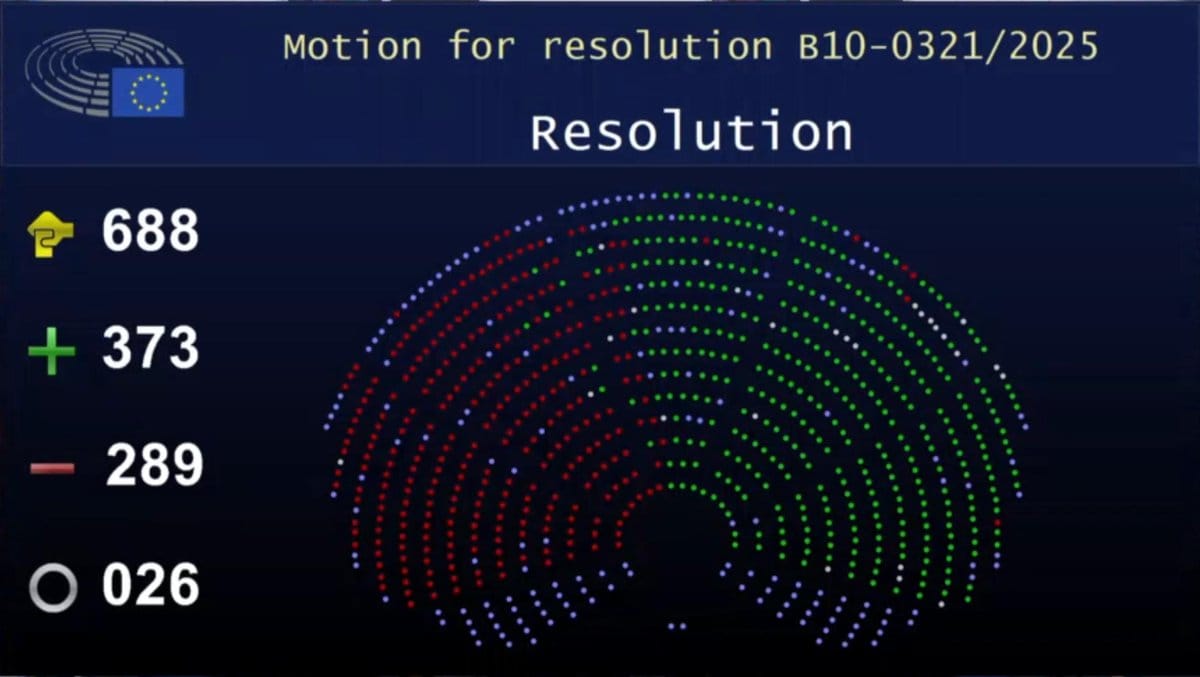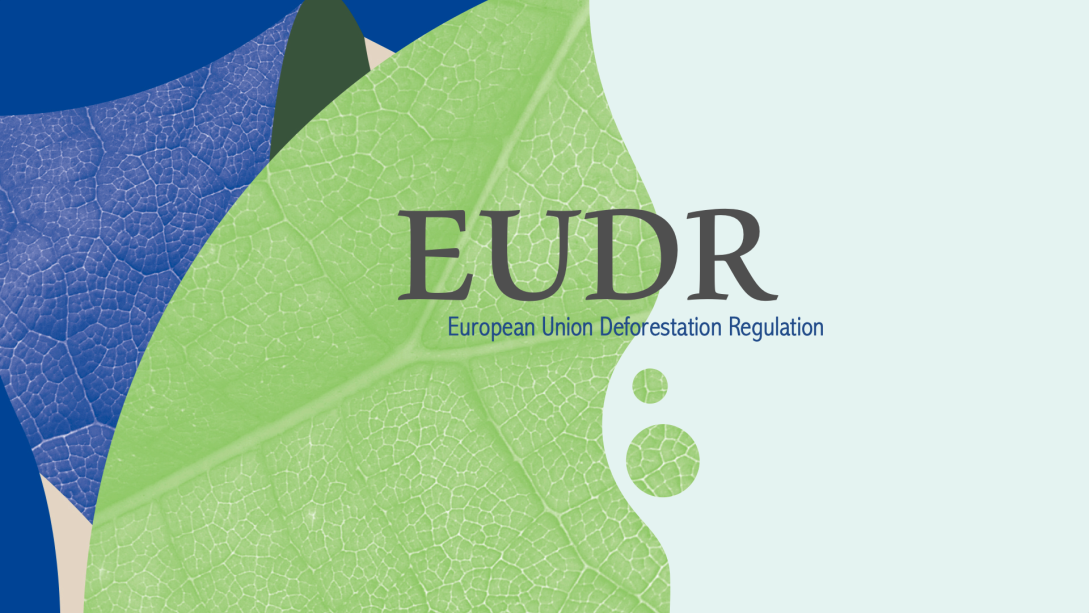'We oppose any calls to delay the EUDR or re-open the substance of the regulation for new negotiations. This would only serve to increase uncertainty for companies and jeopardise the significant investments they have already made in preparing for compliance with the requirements outlined in the adopted Regulation. The remaining six months until the application date should be used for further clarifications via guidance and for providing support for smallholder farmers in producing countries. This position is also reflected in a public letter that we recently co-signed together with other companies and multi-stakeholder initiatives across multiple commodities covered by the EUDR (cocoa, coffee, wood, palm oil, natural rubber). The letter demonstrates that there is broad support for the current timeline and content of the EUDR.
European MPs have backed calls for the repeal of the implementing regulation and revision of the EUDR benchmarking system, which is set to be introduced by the European Commission (EC) as part of the legislation, which is due to come into force at the end of 2025.
A vote earlier today by members of the European Parliament (MEPs) backed an objection tabled by the centre-right European People’s Party (EPP Group) to the EC’s benchmarking system on a list of countries that present a low or high risk of producing relevant commodities, including cocoa.

Although Parliament cannot veto this Commission decision, a vote of 373 for, 289 against, and 26 abstaining sends a strong message to the Commission ahead of an expected meeting on Monday, 14 July, by EU agriculture ministers to discuss simplification of the EUDR.
“We support the fight against deforestation, but this proposal is flawed and unfair,” said the EPPG on a post on X after the vote.
Fanny Gauttier, the Rainforest Alliance Public Affairs Lead Europe, told cocoaradar.com: "The Rainforest Alliance regrets the result of the vote today. We have consistently opposed the introduction of a 'no risk' category, which would undermine the objectives of the EUDR and introduce an unacceptable discrimination for non-EU producing countries.
“The Commission must now stand firm and preserve the credibility of the EU by ensuring that the EUDR is implemented without changes at the end of this year."
Will There Be Yet Another Delay to the EUDR?
Meanwhile, the EUDR, which is set to become law on 25 December 2025, is thrown further into doubt with the prospect of yet another delay, alongside calls for simplification of its core enforcement mechanisms.
In another letter addressed to the European Commission, 18 Member States, including Austria, Italy, and Poland, urged officials to revise the EUDR framework. Their main requests:
- Simplify compliance for “low-risk” countries by reducing or removing stringent traceability requirements.
- Postpone implementation beyond the current December 30, 2025, deadline.
The countries argue that the current framework is disproportionately burdensome, particularly for small-scale producers and traders in stable forest regions. They warn that failure to adjust the regulation could have unintended consequences, like pushing trade away from EU markets entirely.

Chocolate Industry Joins the Chorus
In a notable development, the Financial Times reported last week that Mondelez International, owner of brands such as Cadbury and Toblerone, has also formally requested a 12-month delay from Brussels. The company cited a volatile cocoa market, record-high prices, and digital infrastructure gaps in supplier countries, particularly West Africa.
“This is not about walking away from EUDR,” Mondelez said in a recent statement. “It’s about making sure we can implement it meaningfully, not just on paper.”

Other major players in the cocoa and chocolate industry, including Nestlé and Mars, have echoed similar concerns, supporting the law in principle but calling for more straightforward guidelines and phased rollouts.
'Stakes are high' says Tony's Chocolonely
In an exclusive interview with cocoaradar.com, Belinda Borck, Global Public Policy at Tony's Chocolonely (Tony's Open Chain), said the stakes are high and the objection could reopen the regulation just months before its implementation in late 2025, potentially weakening or delaying this critical environmental legislation.
"We strongly hope this does not happen."
She said Tony's Chocolonely's message remains resolute. “Our aim is to end exploitation in the cocoa industry together. We’re tackling the core issues: lack of a living income, child labour, and deforestation. That’s why we fully support the EUDR. Cocoa is a leading driver of deforestation in Ghana and Côte d'Ivoire. We cannot allow delays or rollbacks of this vital legislation.
“We strongly oppose any calls suggesting further amendments to the EUDR, such as adding a zero-risk category, that would require another legislative process. The time to act is now - our planet can’t wait.”
Climate Change
Borck said the consequences of postponing, scrapping, or watering down the EUDR are significant. “By 2050, vast areas of Ghana and Côte d’Ivoire are projected to become unsuitable for cocoa production, affecting farmers' livelihoods for generations. Climate change is already reducing yields, making it harder for farmers to earn a living, even with rising cocoa prices.
“Urgent action is needed to halt cocoa-driven deforestation and protect our planet. Ensuring regulatory certainty must be a top priority to safeguard the competitiveness of EU businesses. In today’s volatile environment, legal clarity, stability, and predictability are essential to foster meaningful global cooperation to tackle issues such as deforestation straight on.
“The EUDR presents a unique opportunity to build more resilient and transparent supply chains. Many stakeholders have already made significant investments—delays or uncertainty now risk progress. The remaining months are critical, and any outstanding issues should be addressed through non-legislative means.”
Tony’s was one of the signatories in a joint letter signed by other European chocolate makers last week stating that further delays or changes to the law “would severely undermine one of the EU’s flagship policies for tackling global deforestation and nature degradation”.
While the chocolate industry, by and large, and NGOs remain steadfast in defending the regulation, industry leaders and EU diplomats stress that without practical pathways to compliance, the EUDR risks becoming a well-intentioned—but ultimately disruptive—policy.
The European Parliament has already approved a one-year delay from the original 2024 start date, and included the option of exempting commodities from “negligible-risk” countries. But many now argue that this doesn’t go far enough.
What’s at Stake for Cocoa?
CocoaRadar sources note that cocoa-producing countries could be disproportionately impacted if no flexibility is introduced. With most West African producers still reliant on manual systems and struggling with climate stress, a rigid implementation could:
- Disrupt existing supply relationships
- Exclude smallholders from EU markets
- Increase traceability costs across the chain
In a statement, African Cocoa Marketplace, a digital trading platform, said it believes that both the letter and spirit of EUDR are best served by authentic supply chain transparency.
"Current transparency solutions are clearly not serving environmental or business sustainability needs for cocoa. ACM firmly believes that meaningful transparency is not only possible, but it is critical for the long-term sustainability of chocolate ingredients."
The European Commission is expected to respond to the requests of Member States later this summer.
- Stay informed. CocoaRadar will continue to track all developments related to EUDR and how they may reshape the global cocoa trade.
- Got insights or concerns about EUDR? Reach out to the editorial team at press@cocoaradar.com
- cocoaradar.com is a media partner for the African Cocoa Marketplace
- From the Desk of CocoaRadar is the official media partner ECA 9th European Cocoa Forum.
- 'From Our Desk. To Yours. Daily.'
- Sign-up here for free and upgrade to an annual plan.


